Recent Blog Posts
5 Examples of Illegal Search and Seizure in Illinois
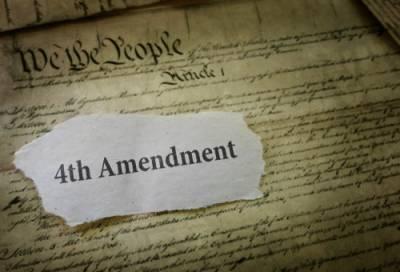 If the police find evidence of illegal drugs on your person or property, you may be at high risk of a conviction on drug charges. However, if that evidence was obtained through an illegal search and seizure, your attorney can help you stand up for your rights and fight for that evidence to be excluded, which may help you avoid a sentence. There are several ways in which a search and seizure can be unlawful, and your lawyer will help you determine if any of them is a factor in your case.
If the police find evidence of illegal drugs on your person or property, you may be at high risk of a conviction on drug charges. However, if that evidence was obtained through an illegal search and seizure, your attorney can help you stand up for your rights and fight for that evidence to be excluded, which may help you avoid a sentence. There are several ways in which a search and seizure can be unlawful, and your lawyer will help you determine if any of them is a factor in your case.
How the Fourth Amendment Addresses Illegal Search and Seizure
The Fourth Amendment to the U.S. Constitution states that "the people have a right to be secure in their persons, houses, papers and effects, against unreasonable searches and seizures." According to the Fourth Amendment, for a search and seizure to be legal, the officers must either have your permission to search your home, your vehicle, your person, or your other property, or they must have a judge-approved warrant to search those same places.
What Is the Difference Between Aggravated Speeding and Reckless Driving?
 While both aggravated speeding and reckless driving are more than minor traffic violations, they are still separate and different charges, each carrying with them relatively severe penalties. In some cases, the two can be compounded with other charges, making for an especially challenging case to manage and difficult punishments to handle.
While both aggravated speeding and reckless driving are more than minor traffic violations, they are still separate and different charges, each carrying with them relatively severe penalties. In some cases, the two can be compounded with other charges, making for an especially challenging case to manage and difficult punishments to handle.
What Is Aggravated Speeding?
Speeding may seem like a minor and oftentimes innocuous traffic violation, at least relative to other dangerous behaviors, but there are instances when speeding is not simply a minor infraction. As speed increases, it can become more and more dangerous, and excessive speeds can result in aggravated speeding charges under Illinois law.
According to state law, aggravated speeding occurs when the driver is speeding above the local limit by 26 miles per hour or more. In cases of 26 mph to 34 mph above the limit, the crime is considered a Class B misdemeanor by Illinois law, and in cases when the speeding is 35 mph or more above the speed limit, it is considered the more severe Class A misdemeanor.
4 Strategies to Help You Fight Burglary Charges in Illinois
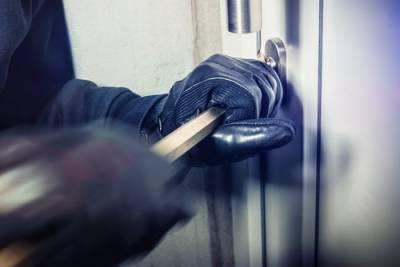 If you are accused of burglary, which is considered a felony in Illinois carrying with it harsh penalties, defending your case can be challenging. The prosecution will likely muster all available evidence in an attempt to establish your guilt. However, a skilled defense attorney can help you protect your rights and work to ensure a fair legal process so that you have a chance of avoiding unnecessary penalties. Depending on the situation, here are some defense strategies that your attorney could use.
If you are accused of burglary, which is considered a felony in Illinois carrying with it harsh penalties, defending your case can be challenging. The prosecution will likely muster all available evidence in an attempt to establish your guilt. However, a skilled defense attorney can help you protect your rights and work to ensure a fair legal process so that you have a chance of avoiding unnecessary penalties. Depending on the situation, here are some defense strategies that your attorney could use.
1: Challenge Assertions of Intent
In Illinois, burglary is defined as unlawfully entering or remaining on a property with the intent to commit a felony or theft. Your attorney may be able to help you avoid a burglary conviction by challenging the prosecution’s attempts to establish your intent. If this strategy is successful, your charges may be dismissed or reduced to a lesser offense like criminal trespassing.
Is It Illegal to Have a Prescription Drug Without a Prescription?
 Especially during these times of pandemic anxiety, many people may look for ways to relax in the form of opioids and other prescription drugs. You might think this is not a crime because the drugs are not illegal, but if you yourself do not have a prescription for those drugs and yet still possess, use, distribute, or sell them, you may be charged with a drug crime in Illinois. Here are the types of drugs and their possession consequences.
Especially during these times of pandemic anxiety, many people may look for ways to relax in the form of opioids and other prescription drugs. You might think this is not a crime because the drugs are not illegal, but if you yourself do not have a prescription for those drugs and yet still possess, use, distribute, or sell them, you may be charged with a drug crime in Illinois. Here are the types of drugs and their possession consequences.
Types of Prescription Drugs You Cannot Possess without a Prescription
Before the COVID-19 pandemic even arrived in the United States, there was an epidemic of another kind destroying lives: the opioid epidemic. And while the focus these days is primarily on the virulent pandemic, illegal prescription drug use, abuse, possession, sale, and distribution are all common, possibly even more so, during these difficult times.
What Are the Differences Between Misdemeanors and Felonies in Illinois?
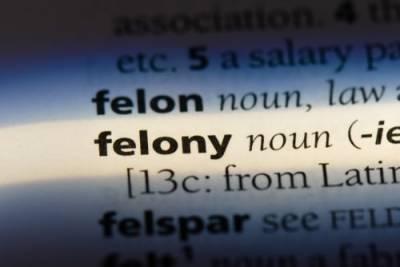 While there are many similarities between a misdemeanor and a felony, the single most central commonality being the fact that they are both categories of criminal offenses in the Illinois justice system with which you can be charged, there are major contrasts that can mean the difference between not much time in jail and low fines to major prison time and substantial fines. Here is a closer look at the differences between felonies and misdemeanors in Illinois.
While there are many similarities between a misdemeanor and a felony, the single most central commonality being the fact that they are both categories of criminal offenses in the Illinois justice system with which you can be charged, there are major contrasts that can mean the difference between not much time in jail and low fines to major prison time and substantial fines. Here is a closer look at the differences between felonies and misdemeanors in Illinois.
Definitions and Examples
Ultimately, the primary difference between a misdemeanor and a felony is the severity of the crime. The Illinois criminal justice system views certain crimes as less serious than other crimes, which is why they are separated into these two categories and then delineated into different classes with different penalties (shown below). The following is true of misdemeanors and felonies in Illinois:
Can You Get Arrested for Driving Recklessly While Wearing a Mask in Illinois?
 Of all the traffic violations you might face in Illinois, reckless driving is one of the most severe since it can lead to a Class A misdemeanor, requiring you to pay up to $2,500 in fines and to spend up to a whole year in jail. In addition, reckless driving charges might also include other charges, such as DUI. The purpose of laws like those surrounding reckless driving is to keep the roads safe for all motorists and pedestrians. So, what happens when you think you are keeping people safe by wearing a mask due to COVID-19 despite operating a motor vehicle? Doing this brings with it a host of problematic scenarios illustrated here.
Of all the traffic violations you might face in Illinois, reckless driving is one of the most severe since it can lead to a Class A misdemeanor, requiring you to pay up to $2,500 in fines and to spend up to a whole year in jail. In addition, reckless driving charges might also include other charges, such as DUI. The purpose of laws like those surrounding reckless driving is to keep the roads safe for all motorists and pedestrians. So, what happens when you think you are keeping people safe by wearing a mask due to COVID-19 despite operating a motor vehicle? Doing this brings with it a host of problematic scenarios illustrated here.
Why Wearing a Mask While Driving Could Get You Pulled Over
As difficult as it might be to believe, people have gotten into car accidents while wearing masks as of late due to the pandemic. In many of those cases, the safety of the driver was the greatest concern as it seemed the mask might have triggered a health problem. But that does not mean that there is no possibility you might get pulled over for driving recklessly if you are wearing a mask. Here are some of the ways a mask can interfere with your driving and cause you to seemingly drive recklessly:
Six Compelling Reasons to Seek Expungement of Criminal Records in Illinois
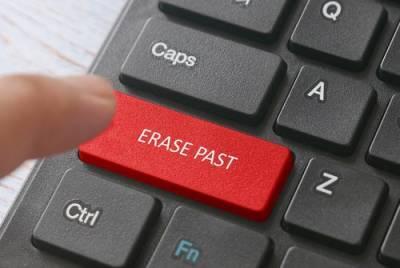 In Illinois, depending on whether you qualify, you can have criminal arrests expunged from your criminal record and other public data. To qualify, you and your crime(s) must meet specific and stringent requirements for expungement. For instance, in order to qualify for an expungement, you must not have been tried or convicted despite being arrested. Criminal offense convictions and major traffic offenses, among other charges, would preclude you from expungement. Regardless, if you are able to get an expungement, here are some of the greatest benefits of doing so.
In Illinois, depending on whether you qualify, you can have criminal arrests expunged from your criminal record and other public data. To qualify, you and your crime(s) must meet specific and stringent requirements for expungement. For instance, in order to qualify for an expungement, you must not have been tried or convicted despite being arrested. Criminal offense convictions and major traffic offenses, among other charges, would preclude you from expungement. Regardless, if you are able to get an expungement, here are some of the greatest benefits of doing so.
Why You Should Get an Expungement in Illinois
Essentially, getting an expungement will prevent the public from catching a glimpse of your prior adverse interactions with the law. By expunging certain criminal arrests, you enable yourself to have a better future. For instance, in seeking and receiving an expungement, you will improve your life situation in all the following ways:
How Can I Fight a Construction Zone Ticket in Illinois?
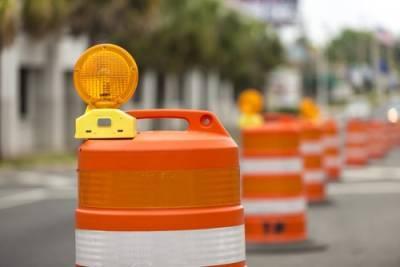 Construction zone tickets are not just any usual traffic violation ticket; since these types of traffic violations involve the safety of construction workers, they often carry with them steeper penalties and fines. However, getting one of these tickets does not mean you must accept the consequences without question or litigation. There might have been legitimate reasons why you were unable to follow the rules of the construction zone, or maybe the government itself did not properly handle administering the penalties. No matter what your circumstances, here are some of the most common strategies for fighting a construction zone ticket.
Construction zone tickets are not just any usual traffic violation ticket; since these types of traffic violations involve the safety of construction workers, they often carry with them steeper penalties and fines. However, getting one of these tickets does not mean you must accept the consequences without question or litigation. There might have been legitimate reasons why you were unable to follow the rules of the construction zone, or maybe the government itself did not properly handle administering the penalties. No matter what your circumstances, here are some of the most common strategies for fighting a construction zone ticket.
Three Common Strategies for Fighting a Construction Zone Ticket
With the right lawyer, strategies like these can be used to successfully defend you against a construction zone ticket.
Prove the Government Did Not Properly Handle Administration of the Penalty: If for some reason the ticketing process did not go as smoothly as it usually does, the authorities might not have handled it correctly. In those cases, much like criminal defense cases, procedural errors can help you defeat these tickets. Examples of the authorities’ failure to comply with their own rules of ticketing include:
What Are Your Rights in Illinois Traffic Court?
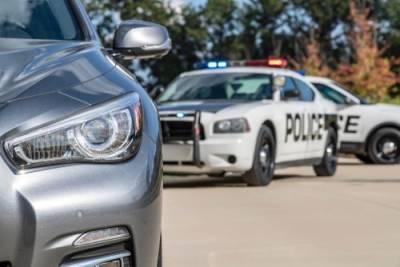 Even though a traffic offense may require you to attend traffic court in Illinois, you still have a range of rights that you should use to your advantage. Regardless of the charges you face, a skilled traffic offense attorney will not only help you understand your rights but how they apply in your case. With the right knowledge and preparation, you have the best chance of limiting or dismissing charges altogether.
Even though a traffic offense may require you to attend traffic court in Illinois, you still have a range of rights that you should use to your advantage. Regardless of the charges you face, a skilled traffic offense attorney will not only help you understand your rights but how they apply in your case. With the right knowledge and preparation, you have the best chance of limiting or dismissing charges altogether.
Your Rights and Illinois Traffic Courts
A simple view of Illinois traffic court is that a person charged with a traffic violation must appear before a court to appeal their case. Although this is partially true, it does not present the full picture and all of the tools at your disposal.
When you appear before a traffic court, you have the right to an attorney. To be represented by an attorney, you must be charged with a traffic offense that could result in imprisonment. Even if you cannot afford an attorney, the court will appoint you one if you face charges of this magnitude. To have the court assign you an attorney, you must prove financial hardship by sharing
New License to Work Act Takes Effect In Illinois
 Thousands of drivers who have had their license suspended or revoked in Illinois can benefit from a new Illinois law that took effect recently: the License to Work Act. Governor JB Pritzker signed the bill into law at the start of the year, but it took effect on July 1. The law protects people who have unpaid tickets, fines, and fees. If you are trying to determine how to get your license reinstated or have more questions regarding your rights as a driver in Illinois, seek legal counsel from a criminal defense attorney with experience in representing clients in traffic violation and license reinstatement cases.
Thousands of drivers who have had their license suspended or revoked in Illinois can benefit from a new Illinois law that took effect recently: the License to Work Act. Governor JB Pritzker signed the bill into law at the start of the year, but it took effect on July 1. The law protects people who have unpaid tickets, fines, and fees. If you are trying to determine how to get your license reinstated or have more questions regarding your rights as a driver in Illinois, seek legal counsel from a criminal defense attorney with experience in representing clients in traffic violation and license reinstatement cases.
License to Work Act
The License to Work Act focuses more on repealing Illinois laws that are neither beneficial to drivers nor the State. Until July 1, 2020, having too many unpaid tickets, fines, and fees could result in a license revocation or suspension. This had a negative effect on tens of thousands of Illinois residents who lost their driving privileges for relatively inconsequential offenses. The original law was designed to prevent the State from losing too much revenue due to unpaid fines, but this strategy proved ineffective, as drivers both lost their licenses and still opted to leave tickets unpaid for financial reasons. This promoted a cycle that forced many residents who need their license to drive to work to suffer even further economic hardship.








